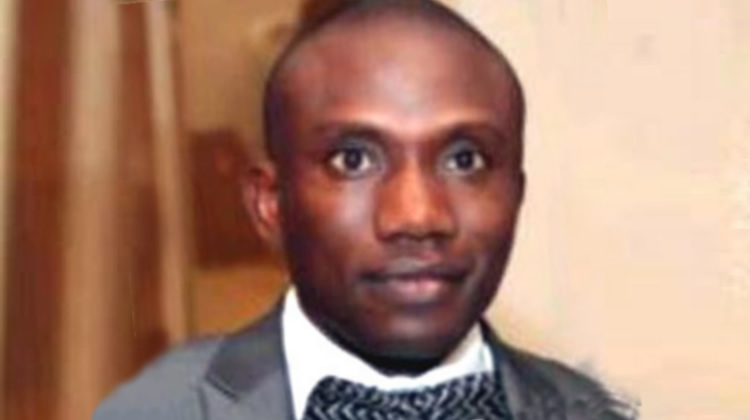Kashim Shettima and Tinubu’s ‘ruthlessness’

[ad_1]

Kashim Shettima, the vice-presidential candidate of the All Progressives Congress, is a man of letters and intellect. Added to his erudition is his unapologetic conviction and power of oratory, uncommon amongst Nigeria’s politicians of the moment. It is impossible to encounter this former governor of Borno State without an indelible impression.
I met Shettima in 2018 He was in the company of five other northern governors who visited Governor Rochas Okorocha. The governors had a few minutes to address media executives who were in the room, and in the end, the former banker came out as the most honest and reflective of Nigeria’s actual problems. I could tell that he was a politician whose talents could benefit Nigeria.
I imagine that many Nigerians now share this opinion since his selection as running mate to Asiwaju Bola Tinubu. Although he has attracted some negative publicity—a matter to which we shall return—Shettima has proved to be a good thinker and speaker, to the delight of many supporters of his party.
Even those opposed to APC’s single faith ticket idea must concede to the potential this candidate bears. That is considering the things he says and the conviction with which he delivers them. One agrees that the capacity for great thinking and speaking is only a part of the required competencies for good governance and Shettima will only be VP if APC wins the 2023 elections, such capacity presents some good optics, at least.
Great speakers can ruin their own chances with the same talents that promote them. A common tendency that attends an orator’s awareness of his own endowments is the temptation to overstate the obvious. Sometimes, this may be an innocuous desire for clarity and at others, an unwitting attempt to prove a point and show capacity. This self-exhibition tends towards pride and most often puts off the audience. Leaders caught in this trap most often speak out of turn, alienating their listeners or injuring their sensitivities. Leaders must therefore resist the almost ever overwhelming temptation to overstate the point and draw unnecessary illustrations.
On more than one occasion in the past couple of months, Senator Shettima has had to apologise or clarify statements he made during interviews or events. This does no credit to him and may, in fact, soon become his albatross.
Starting with his comments about Vice President Yemi Osibanjo before the APC primaries, to his soundbite on the armed forces and, more recently, the comparison of Tinubu with a crowd of past Nigerian leaders. This man needs far more circumspection in his utterances.
For instance, his comparison of Tinubu with past Nigerian leaders at the 96th anniversary celebration of the Yoruba Tennis Club in Ikoyi was an unnecessary venture that did nothing to promote his principles.
Each of those leaders may have contributed one or two things to the survival of the country but the fact is that Nigeria is at its lowest ebb today shows that all these men have failed to activate an enduring vision. For Shettima to, therefore, harmonise their failure as indicating what Nigerians should look forward to is shocking.
Then the point about the late General Sani Abacha, who is the most unloved and obvious representative of the things Nigeria should depart from, is inexcusable. Identifying Abacha’s ruthlessness as an ideal for governance in 2023 is also an inconceivable proposition.
In his rebuttal of initial insinuations about his comments, the candidate tried to juxtapose his recommendation of ruthlessness as opposed to nice leadership that gives in to every pressure. However, niceness is not the exact opposite of ruthlessness. There are visionary, decisive and firm leaders who are also compassionate and able to deal with issues judiciously. The most important capacity is discernment.
In clarifying his position, Shettima spoke about some “obsession with distorting one’s views to settle partisan scores…,” and that is unbelievable. Our politicians must acknowledge that the vast majority of Nigerians do not belong to political parties. Attributing every dot of criticism to the opposition and suggesting that it is “bias that cannot be erased by sound education,” is condescending and escapist.
Nigerian politicians must come to terms with certain things now that campaigns are about to start.
The first is that the exclusive days of the traditional media when organisations considered social responsibility and filtered the comments of politicians before publishing them, are behind us. These days, citizen journalists take the story out of the mouth of the speaker and interpret it the way they please. So, political communication must be as clear, direct, and unambiguous as possible. There can no longer be excuses.
Second, political leaders must be conscious of the audiences that they will be addressing. With the experience of young Nigerians, (who have information about global trends at their fingertips), with successive governments in Nigeria, anyone marketing political candidates must stay with the facts and avoid offensive anecdotes.
Third, political candidates must learn the intricacies of non-verbal communication. Some people believe that President George Bush’s checking his wristwatch on camera amid a 1992 town hall debate sent the wrong signals to the electorate and further affected his chances. So, all gestures and expressions are subject to various interpretations.
Most importantly, simplicity is the hallmark of impressive speeches. You are good to go if you add the ability for self-restraint to this. Great people, including philosophers like Socrates, could have saved their lives by the choice of different words other than the ones they chose at the end of their lives. Leadership, especially during electioneering is slippery, requiring a lot of wisdom.
In 48 Laws of Power, Robert Green says, “When you are trying to impress people with words, the more you say, the more common you appear… The more you say, the more likely you are to say something foolish.
He illustrates how verbosity demystifies leaders and makes them lose influence through the story of Coriolanus, a military hero of ancient Rome. The respected warrior chose to run for political office after winning many battles. After launching his political career, he spoke at rallies, displaying his scars from battle and creating a huge impression on the people. So much so that everyone thought his election was a foregone conclusion. Things changed on election day when he held a huge rally and started bragging about all he did for the empire and how he was sure of victory. This affected the electorate’s estimation of his candidacy, and he lost his election.
Nigerians need little talk from those who seek office in 2023. It’s a difficult time in the country’s history, so bragging about past accomplishments, verified or not, is unnecessary. What Nigerians ask for is a roadmap on how to solve the most basic problems they contend with. How every Nigerian will feel like a part of the country, how everyone will feel secure, how all children will go to school, receive health care and hope for the future. Politicians should know that we don’t need a lot of words or illustrations to convey the message of hope.
– Twitter @niranadedokun
[ad_2]


